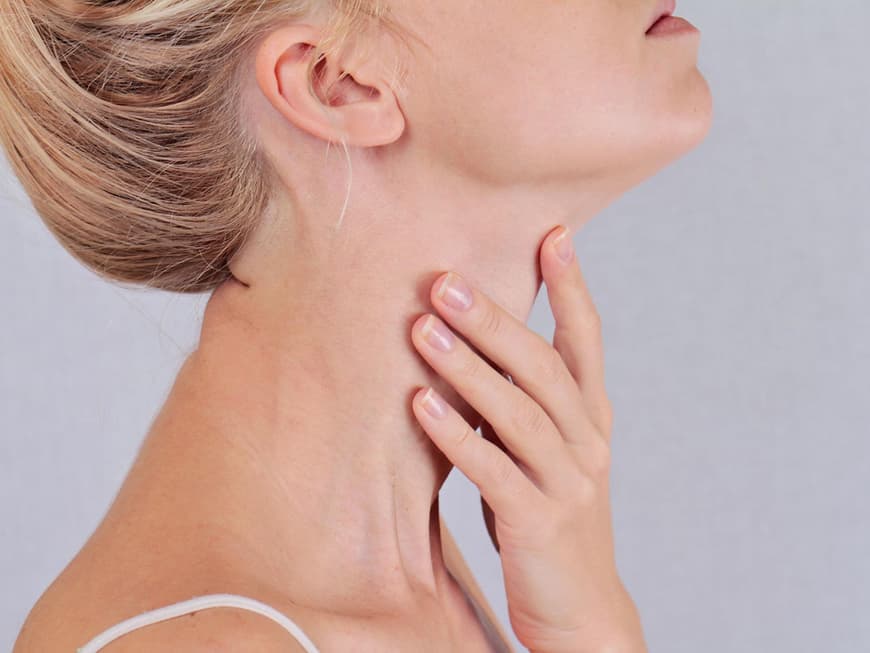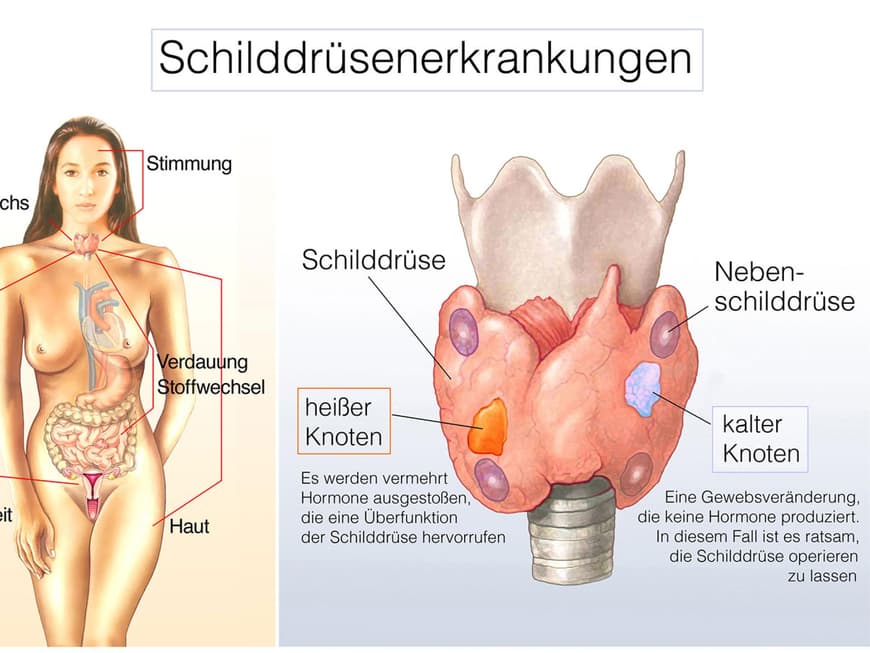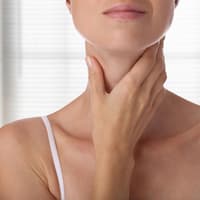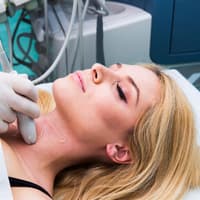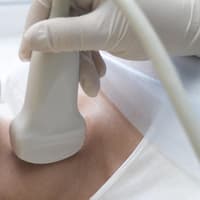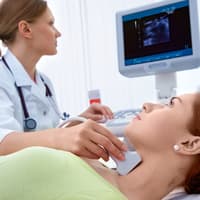Thyroid gland: function and hypofunction
It is only the size of a walnut and weighs 20 to 25 grams. According to the German Society for Endocrinology (DGE), every third person over 50 has changes to their thyroid gland. But not all nodules need to be treated. We spoke to Dr. Sigrun Merger about the small organ with the big impact.
What does the thyroid actually do?
"It is the motor for everything, really everything that happens in the body. It regulates the body's energy consumption, weight, body temperature, the activity of nerves, muscles, heart, circulation, stomach and intestines. It is also important for our mental well-being. The thyroid gland is actually involved in all the activities of every single cell in the body."
Are diseases of this organ common?
"Yes. Around 30 percent of Germans have an enlarged thyroid gland, which is caused by iodine deficiency. This is because Germany has been an iodine-deficient country since the last ice age; the soil contains none of this vital element."
Isn't the deficiency remedied by iodized salt?
"No, the amount is not enough. To get enough iodine, you would have to salt your food completely. Even people in northern Germany are not protected from the deficiency - even ten kilometers from the coast, the air is no longer iodine-rich enough."
How can you protect yourself from this deficiency?
"A lot is being done to remedy the iodine deficiency. Farmers, for example, give their slaughter animals iodine-rich feed, bakers use iodized flour for bread and rolls, and there are now even gummy bears containing iodine."
What are the symptoms of thyroid problems?
"The changes are often gradual, many patients only realize very late that something is wrong. If you have hypothyroidism, you gain weight and are often listless, tired and listless. Sometimes there is also hair loss. Patients often have more difficulty swallowing, think more slowly than usual and can also suffer from depression. Hyperfunction is manifested by palpitations, weight loss, the patients are hyper and sometimes really over-candid."
Is this sometimes not recognized by the doctor?
"In fact, the diagnosis is not always easy. In medical training, the thyroid gland tends to be neglected, even though it is so important. And let's be honest: almost everyone is tired these days, and people don't immediately think of the thyroid gland when they suffer from depression. Even with symptoms of hyperthyroidism, doctors often diagnose a mental illness and refer their patients to a psychiatrist. Nevertheless, the GP is the first port of call if you notice changes such as constant tiredness or irritability."
What does thyroid therapy look like?
"Today, patients can live well with thyroid hormones. Radioiodine therapy is used for hot nodules and malignant nodules in combination with thyroid surgery. This involves taking radioactive iodine. If the thyroid gland is severely enlarged and in the case of so-called cold nodules, radioiodine therapy is not effective and the organ must then be surgically removed."
Hashimoto's: the new widespread disease
The autoimmune disease Hashimoto's is painless. At 80 percent of cases, it is the most common thyroid disease. Women suffer from it nine times more often than men, and in most cases the disease occurs between the ages of 40 and 50. Thyroid tissue is destroyed, resulting in hypothyroidism, although hyperthyroidism can also occur in phases. The cause is genetic.
Echo therapy: better than surgery
Today, surgery is no longer absolutely necessary. Nodules can also be treated with so-called echo therapy. This involves bundling ultrasound waves and heating the exact area affected by the tissue change. This reduces the size of the lump without any incisions or scars. This non-surgical treatment method is performed on an outpatient basis in a single session, and local anesthesia is completely sufficient. The session lasts from 20 minutes to an hour. Patients can go home immediately after the treatment.
As the nodular tissue is treated with millimeter precision, thyroid function is fully preserved - a major advantage over surgical procedures, which usually involve removing part of the thyroid gland or even the entire organ. Studies have shown that echo therapy reduces the nodule volume by an average of 69 percent.
There are now eleven centers in Germany that perform echo therapy. The method is painless. You can find more information at www.echotherapie.com
These foods are good for you
Iodine must be ingested through food. These foods are particularly rich in this vital substance: algae, fried herring, broccoli, mushrooms, eggs, lamb's lettuce, oatmeal, pulses, ginger, crab, langoustines, chard, mussels, mushrooms, plaice, pollock, seaweed, citrus fruits.

